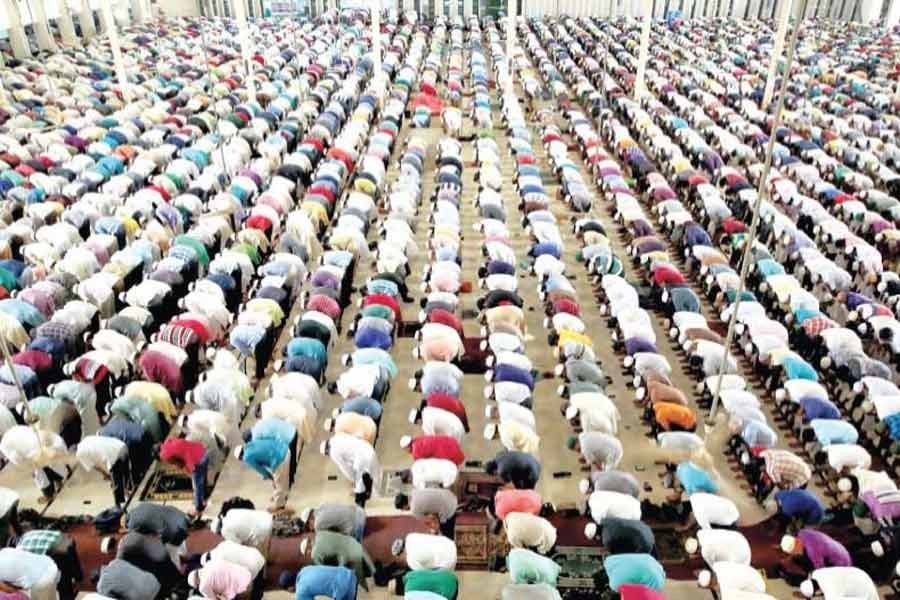
Published :
Updated :

Eid-ul-Azha, the second largest Muslim festival after Eid-ul-Fitr, will be celebrated on Wednesday, August 22. Like in every year, Bangladesh is taking final preparations to join the Muslim world's Eid celebration observed in solemn gaiety. The festival falls on the 10th day in the month of Zilhaj in the Hijri calendar. Eid-ul-Azha is one of the rituals of the Holy Hajj, which is performed on the 8th, 9th and 10th of Zilhaj. Unlike Eid-ul-Fitr, this Eid stands out with the great importance it attaches to the virtue of sacrifice, the one that marks dedication of one's dearest object to God. The sacrifice of animals in the name of God has been in practice since the times of Hazrat Ibrahim (AS). It was his readiness to sacrifice his favourite son Hazrat Ismail (AS), later replaced by a lamb -- on divine intervention, which prompted the tradition of 'qurbani', the ritual of slaughtering 'halal' animals on the Eid day. The festive day also celebrates the willingness to be close to God.
The mundane aspects of the Eid-ul-Azha festivity are unique. In Bangladesh, they mostly revolve round the massive mobilisation of a vast network involving sacrificial animals. Starting from rural cattle farms to the end-buyers at retail markets, it witnesses a number of phases. As time wears on, the network continues to become wider and complicated. With the increase in population, the demand for the sacrificial animals has kept soaring --- making way for undesirable quarters in the annual market. Those include smugglers, local influential quarters, middlemen, extortionists and cheats. The ordeal of the cattle farmers begins from the phase of transporting the animals from one place to another, especially to the cities. This year forcing cattle traders allegedly into selling them at markets midway at lower prices has frustrated many dairy farm owners. In spite of the authorities' selection of designated places for arranging cattle markets in the cities, especially Dhaka, makeshift trading points threaten to sprout. Apart from depriving the traders of their due profit, these unauthorised markets net the capital in myriad types of ordeal. Thanks to stringent measures, the city remained free of the sufferings caused by these unlawful markets in the last couple of years. It is incumbent on the two city corporations to go all out to stop reappearance of these markets. They are mostly arranged on the busy roads, in every possible open space, with many beside localities.
In the recent years, with sacrificial cattle-rearing turning a popular and profitable venture in villages, the markets remain largely free of the cows smuggled from across the border. However, unscrupulous businesses wait in the wings. Local traders have still to brace for the entry of smuggled cows into Eid cattle markets. However, the cattle farmers' rearing of robust sacrificial animals with the help of the agricultural department has changed the age-old market scenario. But the scourge of cow-fattening with harmful chemicals, thus making the animals hazardous to consumers, continues to loom. Wild price fluctuations, orchestrated by the so-called syndicates, have yet to be coped with.
These man-induced irritants finally get overwhelmed by the spiritual strength and the traditional jubilations inherent in the festival. The joy-filled travels to ancestral village homes, despite the accompanying hassles, add to the festivity of Eid. In essence, Eid-ul-Azha highlights the virtues of sacrifice and humility. In the strife-torn world, where petty selfishness robs man of his core purpose of existence, the festival appears as a reminder --- that of the universality of submission and sharing.


 For all latest news, follow The Financial Express Google News channel.
For all latest news, follow The Financial Express Google News channel.